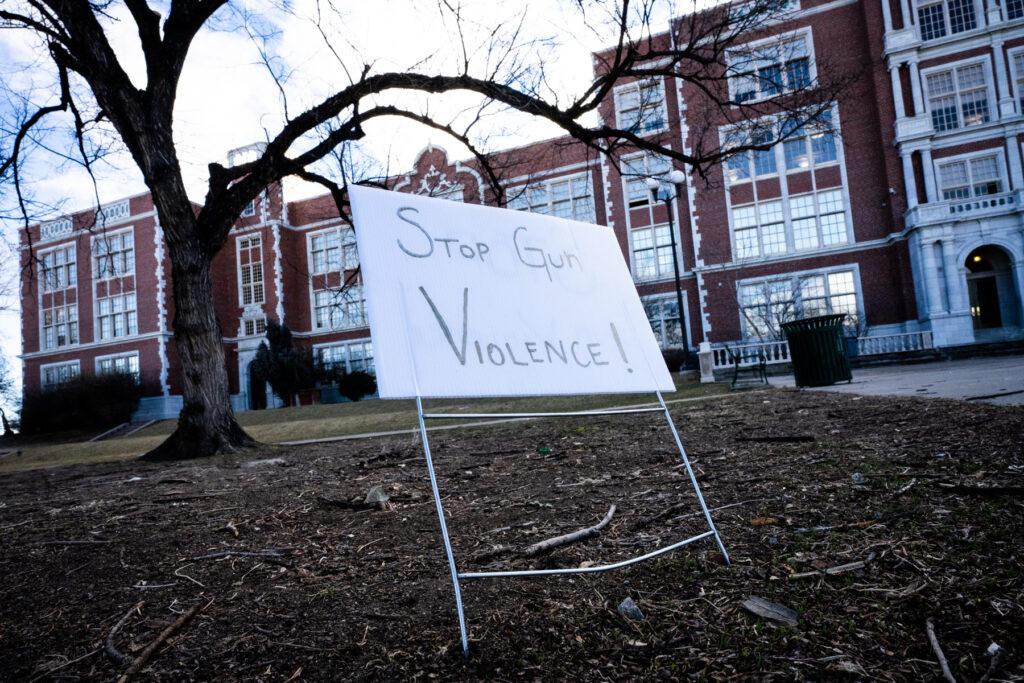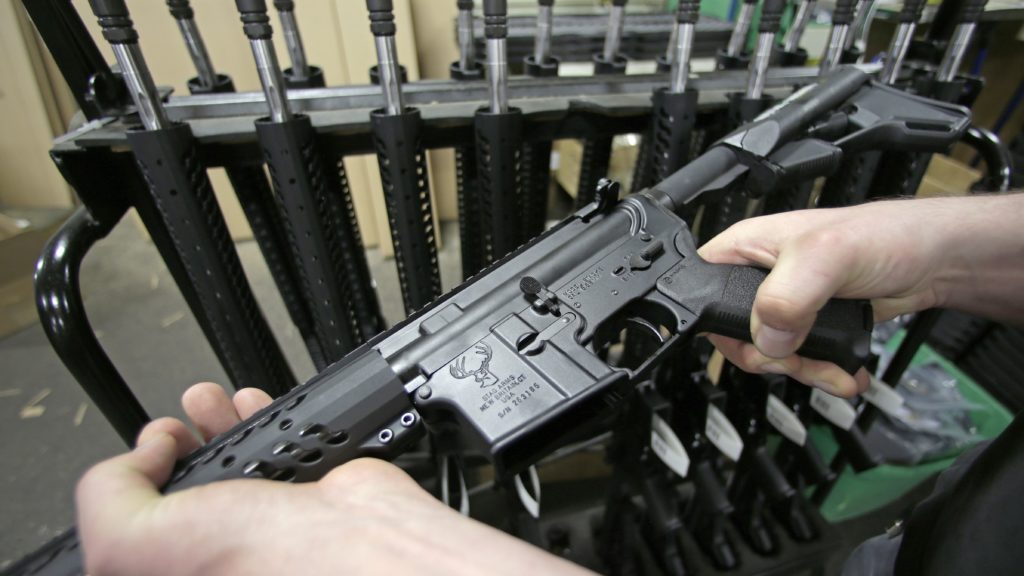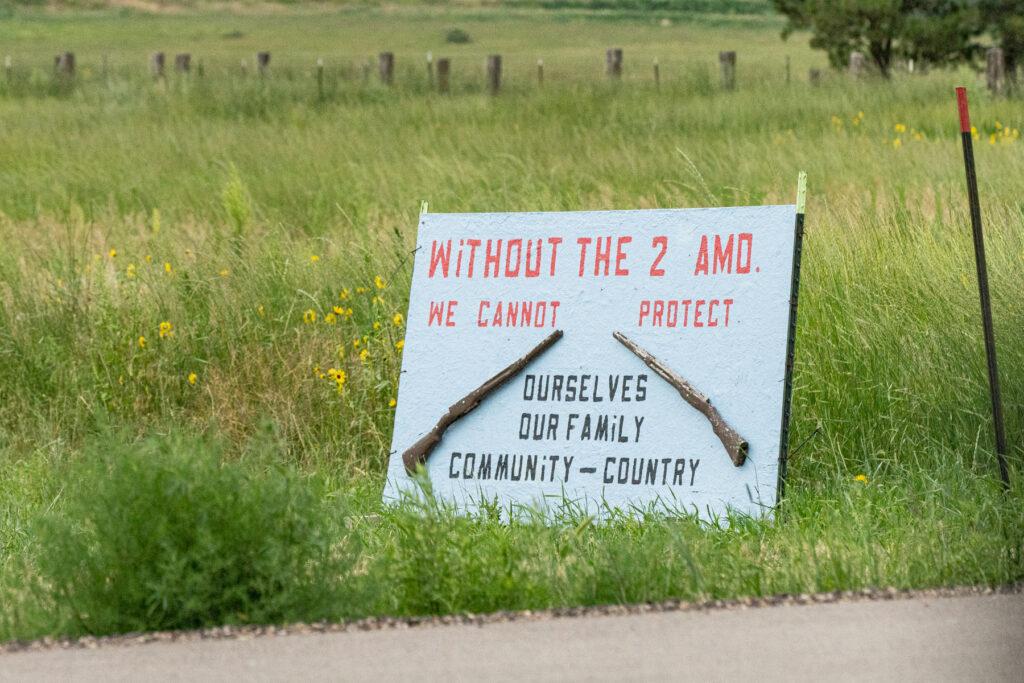
A renewed Democratic effort to ban so-called assault weapons is moving forward at the statehouse. It cleared the House Judiciary Committee shortly after midnight on Wednesday, following a roughly 14-hour hearing and a strong showing from opponents who blasted the measure as unconstitutional.
This same committee rejected a similar proposal in 2023 by one vote, but a reshuffling of its Democratic membership meant it passed this year on a party-line vote of 7-3. One Democratic member, Rep. Marc Snyder of Manitou Springs, who voted no in 2023, missed Tuesday's hearing.
“We cannot sit by in the state of Colorado and do nothing as children like me are scared to go into classrooms like I once was,” said Democratic Rep. Tim Hernández of Denver, one of the main sponsors of House Bill 1292.
At age 26, Hernández is currently the state’s youngest legislator. He previously taught at a high school in Aurora and attended protests at the capitol in 2023, when hundreds of students walked out of classrooms to urge the legislature to do more to prevent gun violence.
“We must take moral action to do everything in our power to stop this,” he said of mass shootings.
The bill would define an assault weapon as a “semiautomatic rifle” that uses detachable magazines and has one of a number of features. Those include a pistol grip, a folding stock, a barrel shroud, or a threaded barrel. The draft also would ban certain .50 caliber rifles, semi-automatic pistols, shotguns with revolving cylinders, and semiautomatic shotguns.
The bill language contains long lists of specific gun models that could no longer be sold or transferred, including everything marketed as an AR, AK, or Thompson-style rifle. The gun industry describes these firearms as ‘modern sporting rifles’ and rejects the term ‘assault weapon.’
While businesses and individuals could no longer sell or transfer these weapons under the legislation, current owners would be allowed to keep their guns.

Hundreds of opponents turned out to argue that the bill is not only unconstitutional but poorly crafted, ineffective, and would actually make Colorado less safe.
“All it does is disarm the good people out there,” said Alicia Garcia, a firearms instructor and Second Amendment activist. “I consider myself a protector.”
Garcia is also a plaintiff in the lawsuit to block Colorado’s three-day waiting period for gun purchases. Garcia told the Judiciary Committee she is always armed and prepared.
“If I'm someplace where evil presents itself, I'm okay with meeting my maker, telling him that I protect innocence, and I'm all right with that. And I took that vow the day that I decided to wear a gun on my hip every day for the rest of my life,” said Garcia.
The bill does come with some exemptions, including for police and military members who keep these weapons for work. It would still allow banned firearms to be used at firing ranges.
Sponsors have agreed to some changes; they added an amendment to allow an assault weapon to be inherited and another that clarifies that people who already own these weapons in Colorado can transport them out of state, for instance, if they want to sell them in Wyoming.
“We cannot control the sale or distribution of assault weapons in surrounding states around Colorado,” said Hernández. He said those changes to the bill were at the request of the Governor’s office.

Democratic Rep. Elisabeth Epps of Denver, who sponsored the 2023 bill and is a sponsor again, urged the legislature to make “decisions that are unapologetically committed to saving lives.”
“I happen to think folks respond really well to their elected representatives doing what they've sent us to do,” she told the committee.
Advocates for stricter gun laws said their polling shows that Colorado voters overall support a ban on assault-style weapons, and that Democratic voters in particular are overwhelmingly in favor of it.
Bill has some momentum, but legal challenges loom
Historically, opponents of bans on specific types of weapons have criticized the criteria as unenforceable and often out of touch with the nuances of firearm styles.
Colorado Democrats have passed several stricter gun laws in recent years but for those who want the state to do more, the assault weapons ban until recently felt out of reach.
Just three years ago, after a mass shooting at the King Soopers in Boulder, there wasn’t enough support to introduce a bill in the legislature. Leading Democrats at the time said the policy would need to happen at the federal level to be effective. However, in 2024, there appears to be more momentum and appetite for a larger volume of gun proposals.
“I think we're at a place where debating gun violence prevention bills has become normalized, which is a good thing,” said Democratic Senate President Steve Fenberg. He said that while some bills will pass and others won’t, just like any other policy issue, it’s no longer the case that all the oxygen is sucked out of the room when a tougher gun law is introduced.
“We've passed a lot of the big elements that we wanted to, and now there's sort of all the other ideas coming to the forefront and they're being debated and some are stronger than others,” said Fenberg.

Republican lawmakers unanimously oppose a ban on assault weapons, but Democrats hold such a wide majority in the House that backers can afford to lose more than a dozen Democratic votes and still get through the chamber.
“Given where I sit, where we sit, I think that we should pass this bill,” said House Judiciary Chair Rep. Mike Weissman of Aurora. He voted for the bill in 2023 and said he’s hopeful this year its fate will be different.
“There are conversations to have about mental health, and even culture and norms, and frankly talking to each other in a civilized way, and that's beyond legislation,” said Weissman. “But just because we can't do all those things in the four corners of this bill doesn't mean that I'm not committed to doing what we can do in this bill before us.”
Even if it clears the House, the bill is still a long way from becoming law.
Committees are more closely divided, politically, in the Senate. And then there’s the legal landscape.
Colorado’s constitution protects individual gun ownership, stating: “The right of no person to keep and bear arms in defense of his home, person and property, or in aid of the civil power when thereto legally summoned, shall be called in question.”
And while the state Supreme Court has upheld past gun laws as legal under that provision, Second Amendment groups are operating in a more favorable legal environment. In 2022, the U.S. Supreme Court’s Bruen decision set a new “historical precedent” standard that all state and federal gun laws must meet, increasing the rigor for these policies to pass constitutional muster.
“There is no analogous law from the founding period, and that's what's relevant under the Supreme Court's precedent,” said Sean Nation with the Center to Keep and Bear Arms at the Mountain States Legal Foundation.
“I certainly understand the urge to do something, but I implore you to think long and hard about whether this legislation complies with your oath to uphold the Constitution,” he warned lawmakers.









